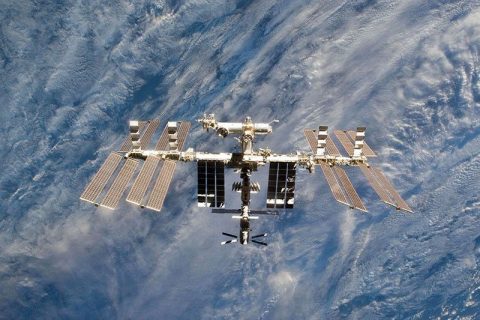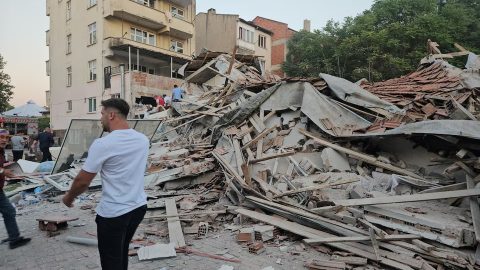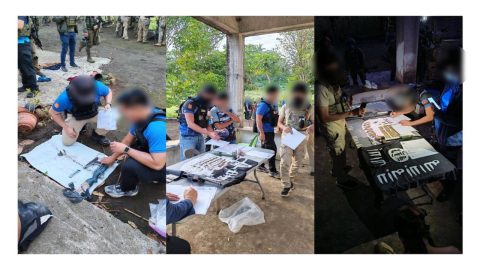Pagkawasak ng satellite dahil sa space missile strike, inamin ng Russia


Inamin ng Russia na nawasak ang isa nilang satellite sa isinagawang missile test, ngunit itinanggi ang akusasyon ng US na nanganib ang International Space Station (ISS) dahil sa pangyayari.
Nitong Lunes ay inakusahan ng US officials ang Russia ng pagsasagawa ng isang delikado at iresponsableng satellite strike na sanhi ng debris sa kalawakan, kayat napilitan ang crew ng ISS na gumawa ng isang hindi tuwirang aksiyon.
Dahil sa pangyayari ay muling bumangon ang mga pag-aalala tungkol sa umiinit na “arms race” sa kalawakan gaya ng laser weapons at satellites na may kakayahang itulak ang iba para mawala sa orbit.
Ayon sa Russian defence ministry, matagumpay nilang naisagawa ang test at bilang resulta nga nito ay nawasak ang Russian spacecraft ‘Tselina-D,” na isang Soviet signals intelligence satellite na noong 1982 pa nasa kalawakan at ilang dekada nang hindi gumagana.
Sinabi ng US officials na hindi sila napasabihan ng maaga tungkol sa nasabing anti-satellite missile test, na ika-apat pa lamang na tumama sa isang spacecraft mula sa ground, na lumikha ng higit 1,500 piraso ng trackable orbit debris.
Ayon kay Russian Defence Minister Sergei Shoigu . . . “ The launch used a promising system that accurately struck its target. The fragments that formed do not pose any threat to space activity.”
Sinabi naman ni US Secretary of State Antony Blinken . . . “ The danger was far from over and the debris would continue to threaten satellites and activities on the ISS.”
Sa isang pulong kasama ng European Union (EU) defence ministers ay sinabi ni NATO Secretary General Jens Stoltenberg . . . “The test is a reckless and concerning act. It shows that Russia is now developing new weapon systems that can shoot down satellites.”
Tinawag namang “space vandals” ni French Defence Minister Florence Parly ang aniya’y “producers of dangerous amounts of debris.”
Agad namang nanawagan ang foreign ministry ng Germany ng paglikha ng mga hakbang na magpapalakas sa seguridad at tiwala, dahil lubha itong nag-aalala sa isinagawang missile test ng Russia.
Ipinahayag ng Russian military na nagsagawa sila ng planado nang mga aktibidad para palakasin ang kanilang defence capabilities, ngunit pinabulaanang mapanganib ang nangyaring test.
Anila . . . “The United States knows for certain that the resulting fragments, in terms of test time and orbital parameters, did not and will not pose a threat to orbital stations, spacecraft and space activities, and the test was carried out in strict accordance with international law and was not directed against anyone.”
Sa isang press conference ay sinabi ni Russian Foreign Minister Sergei Lavrov . . . “To declare that the Russian Federation creates risks for the peaceful use of space is, at the very least, hypocrisy, there are no facts.”
Ayon naman sa NASA . . . “The crew aboard the orbital outpost — currently four Americans, a German and two Russians — were woken up and forced to take shelter in their return ships.”
Una nang ipinahayag ng Roscosmos space agency ng Russia, na patuloy na minomonitor ng kanilang “automated warning system for dangerous situations” ang sitwasyon para maiwasan at mapigil ang mga posibleng banta sa kaligtasan ng ISS at crew nito.
Ayon sa pahayag . . . “For us, the main priority has been and remains to ensure the unconditional safety of the crew.”
Sinabi ni Roscosmos chief Dmitry Rogozin . . . “I had detailed phone call with NASA chief Bill Nelson on Tuesday evening. In short… we are moving on, ensuring the safety of our crews on the ISS and making joint plans.”
Sa kabila ng tensiyon, namamalaging matatag ang space ties ng US at Russia simula nang matapos ang Cold War, kung saan nagtutulungan ang mga ito sa kapakanan ng ISS na kapwa nila binuo. (AFP)




